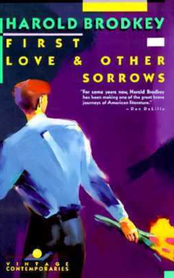A WRITER'S WIT |
My Book World

This collection first published in 1954 when Brodkey was twenty-four is still a gem, has hardly aged at all. In fact, the stories seem to enlighten readers as to what that period was like, and, at the same time, show how little in human nature has changed. Also … he may be among the first short story writers to have constructed what editors have come adoringly to call “linked” stories (so much more novel-like than, say, fifteen disparate stories).
The first two stories are connected by way of St. Louis’s red-brick buildings, its clammy climate, its propensity for lightning bugs. More important, its people, neither eastern sophisticates nor western ruffians, take up the page with their circumspect curiosity about life’s challenges. The next two stories, linking a St. Louisan to his undergraduate years at Harvard University, explore the angst that college people face, one in which two buddies spend a summer traveling in Europe and wind up (like lovers, but not) despising one another. The other story is similar, only the couple are male and female experiencing intercourse for the first time ever and how that plays out over the period of a school year. The final five stories concern a young woman named Laurie/Laura, the stories ranging from a date she is preparing for while a nineteen-year-old at Wellesley College. The remaining follow her through early marriage where she seems to struggle with post-partem depression following the birth of her daughter, Faith. In the next story, Faith is fifteen months old, and Laura must settle for a substitute babysitter, a brusque African-American woman, whose apparent roughness with the child may nevertheless be healthier than Laura’s constant hand-wringing over her decisions. And finally, the last story explores the testy relationship between Laura and her husband Martin, as she is pregnant with their second child. Her depression, her lack of confidence, seem to have increased in intensity, and Brodkey appears to have put his finger on the nuances of a woman’s life in 1950s America before Betty Freidan even identifies the problem. He does so with subtlety so grand readers then may not have been able to recognize them. A superb read for short-story lovers.
NEXT FRIDAY: My Book World |
Scott Berg's biography Max Perkins: Editor of Genius



 RSS Feed
RSS Feed